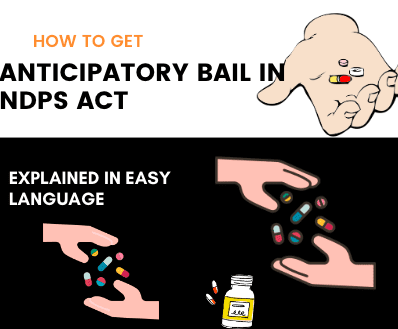Facing charges under the Narcotic Drugs and Psychotropic Substances (NDPS) Act in India can be a daunting and confusing experience. The complexities of the law, coupled with the potential for severe penalties, make seeking legal counsel a crucial step in protecting your rights and securing the best possible outcome. This article aims to clarify the importance of having an NDPS lawyer by your side, guiding you through the key considerations and empowering you to make informed decisions regarding your legal defense.
Do I Need a Lawyer for NDPS Case
The NDPS Act is a stringent law with harsh penalties for even minor offenses. Navigating its intricate procedural requirements and understanding the nuances of evidence admissibility can be overwhelming for someone without legal expertise. An experienced NDPS lawyer brings several invaluable benefits to your defense:
- Expertise in NDPS Law: They possess in-depth knowledge of the Act, its various sections, and relevant case law. This allows them to identify weaknesses in the prosecution’s case, build your defense strategy, and explore potential arguments for dismissal or reduced charges.
- Procedural Guidance: With extensive experience handling NDPS cases, they can ensure all legal procedures are followed meticulously, minimizing the risk of procedural errors that could jeopardize your case.
- Negotiation and Bail Applications: They can effectively negotiate with the prosecution for bail or lesser charges, and represent you skillfully in court hearings, maximizing your chances of a favorable outcome.
- Protecting Your Rights: They remain vigilant in safeguarding your rights during police inquiries, interrogations, and throughout the legal process, ensuring you are treated fairly and protected from any unlawful practices.
When is Hiring an NDPS Lawyer Non-Negotiable?
While legal representation is beneficial in all NDPS cases, it becomes absolutely crucial under specific circumstances:
- Serious Offenses: If you face grave charges involving large quantities of drugs or trafficking offenses, securing the best possible defense is paramount. An experienced lawyer can navigate the complexities of your case and fight for an appropriate outcome.
- Complex Evidence: When the prosecution’s case hinges on intricate evidence like chemical analysis reports or witness testimonies, having a lawyer to dissect the evidence and present counter-arguments is essential.
- Interrogation and Arrest: If you have been detained by law enforcement, consulting a lawyer immediately is crucial. They can guide you through your rights, ensure proper procedures are followed, and protect you from potential self-incrimination.
Finding the Right NDPS Lawyer for Your Case
With numerous lawyers specializing in NDPS cases, choosing the right one requires careful consideration:
- Experience and Expertise: Seek a lawyer with proven experience in handling similar NDPS cases and a thorough understanding of the relevant legal landscape.
- Track Record: Research their success rate in NDPS cases and gather client testimonials to get a sense of their effectiveness.
- Communication and Trust: Ensure a comfortable rapport with your chosen lawyer. Open communication and a clear understanding of your goals are crucial for a successful collaboration.
Conclusion: Securing Your Future with the Right Legal Support
Facing NDPS charges is a life-altering experience. While the fear and uncertainty are understandable, remember you are not alone. By choosing an experienced and dedicated NDPS lawyer, you gain a powerful ally in navigating the legal system and fighting for your best interests. Invest in your future and legal defense, and take the first step towards a favorable outcome by seeking expert legal counsel today.
Disclaimer:
This article is for informational purposes only and does not constitute legal advice. Please consult with a qualified NDPS lawyer for specific guidance regarding your case.
By incorporating these elements and optimizing your article for relevant keywords, you can create a valuable resource for individuals facing NDPS charges in India. Remember to update the keywords and legal information to reflect the most recent developments in the field.
I hope this helps!
FAQ (FREQUENTLY ASKED QUESTIONS)













